Abstract
Representational theories of perception postulate an isolated and autonomous "subject" set apart from its real environment, and then go on to invoke processes of mental representation, construction, or hypothesizing to explain how perception can nevertheless take place. Although James Gibson's most conspicuous contribution has been to challenge representational theory, his ultimate concern was the cognitivism which now prevails in psychology. He was convinced that the so-called cognitive revolution merely perpetuates, and even promotes, many of psychology's oldest mistakes. This review article considers Gibson's final statement of his "ecological" alternative to cognitivism (Gibson, 1979). It is intended not as a complete account of Gibson's alternative, however, but primarily as an appreciation of his critical contribution. Gibson's sustained attempt to counter representational theory served not only to reveal the variety of arguments used in support of this theory, but also to expose the questionable metaphysical assumptions upon which they rest. In concentrating upon Gibson's criticisms of representational theory, therefore, this paper aims to emphasize the point of his alternative scheme and to explain some of the important concerns shared by Gibson's ecological approach and operant psychology.
Full text
PDF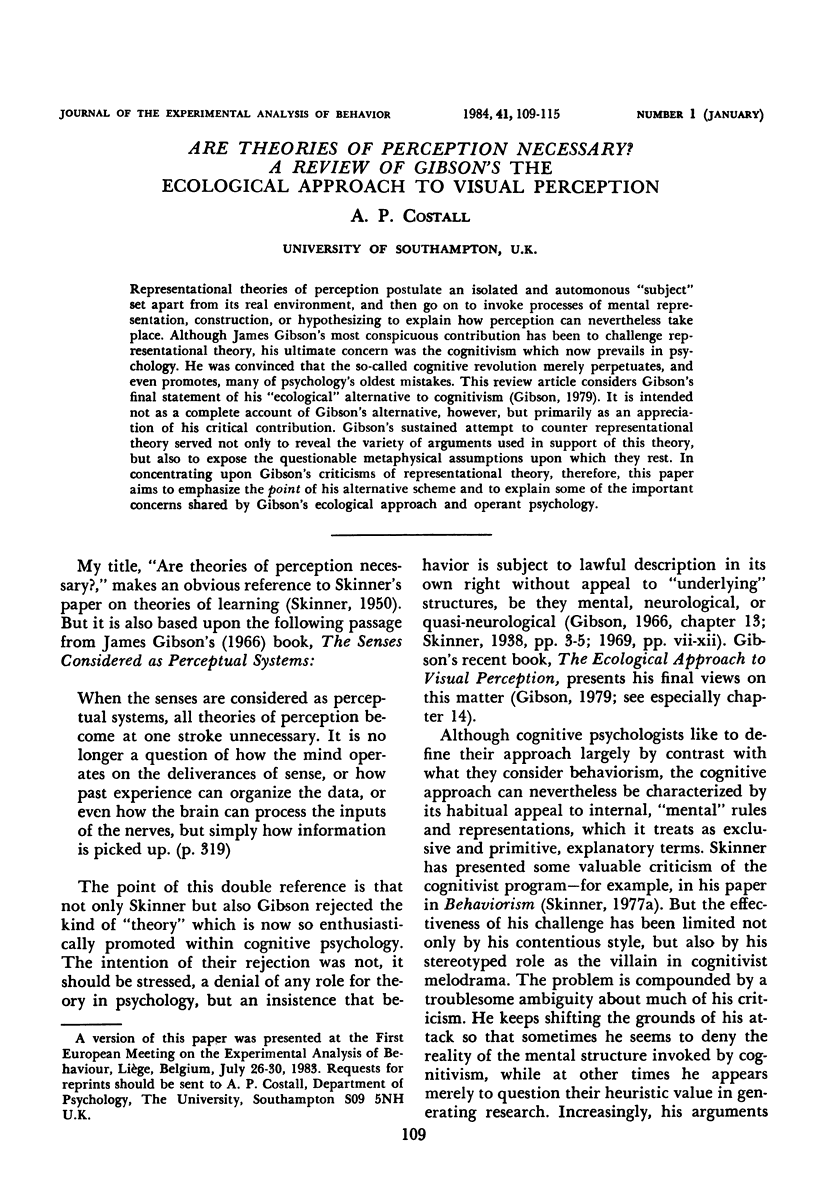
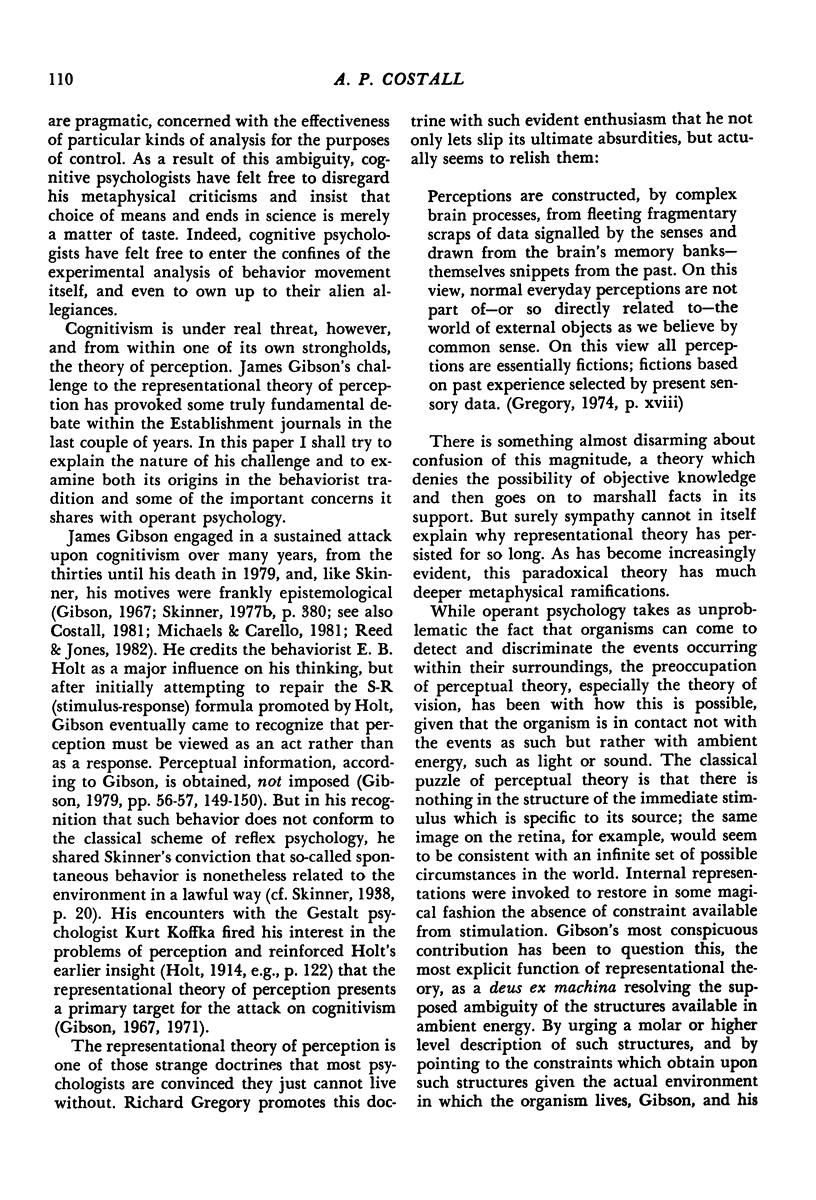
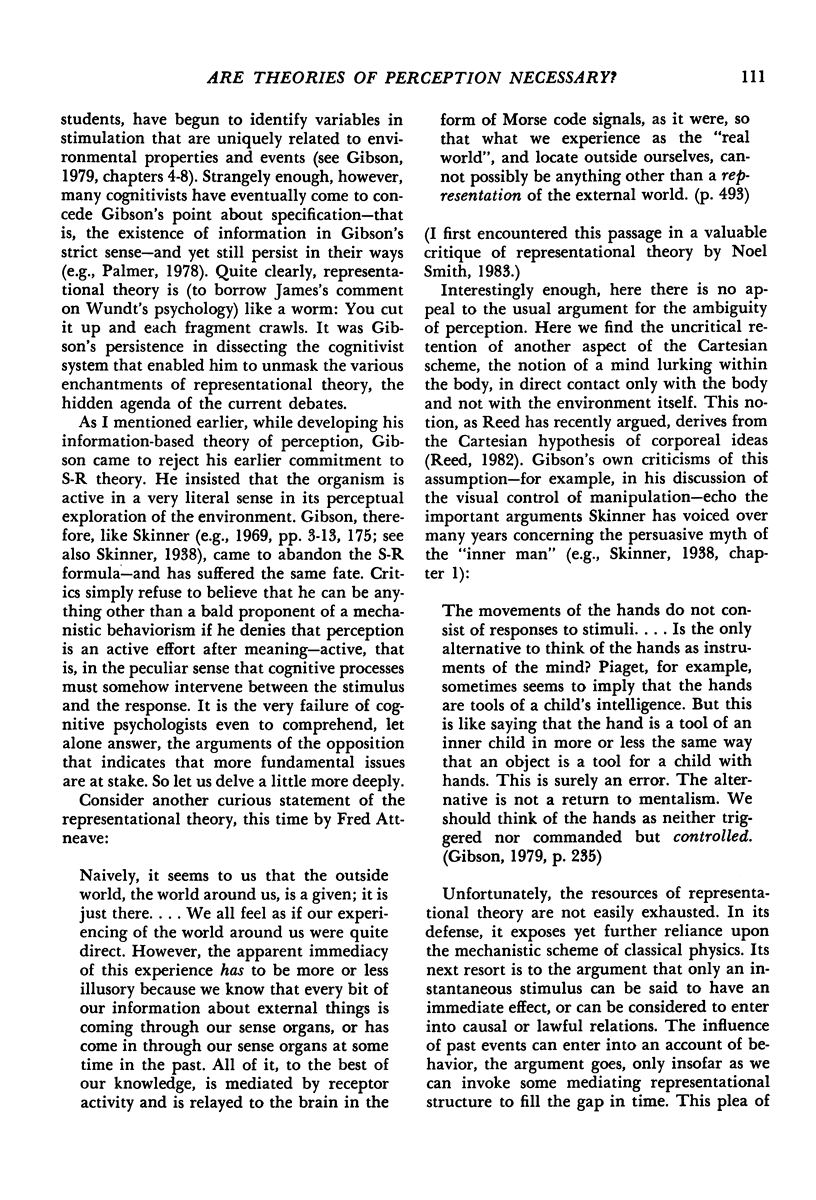
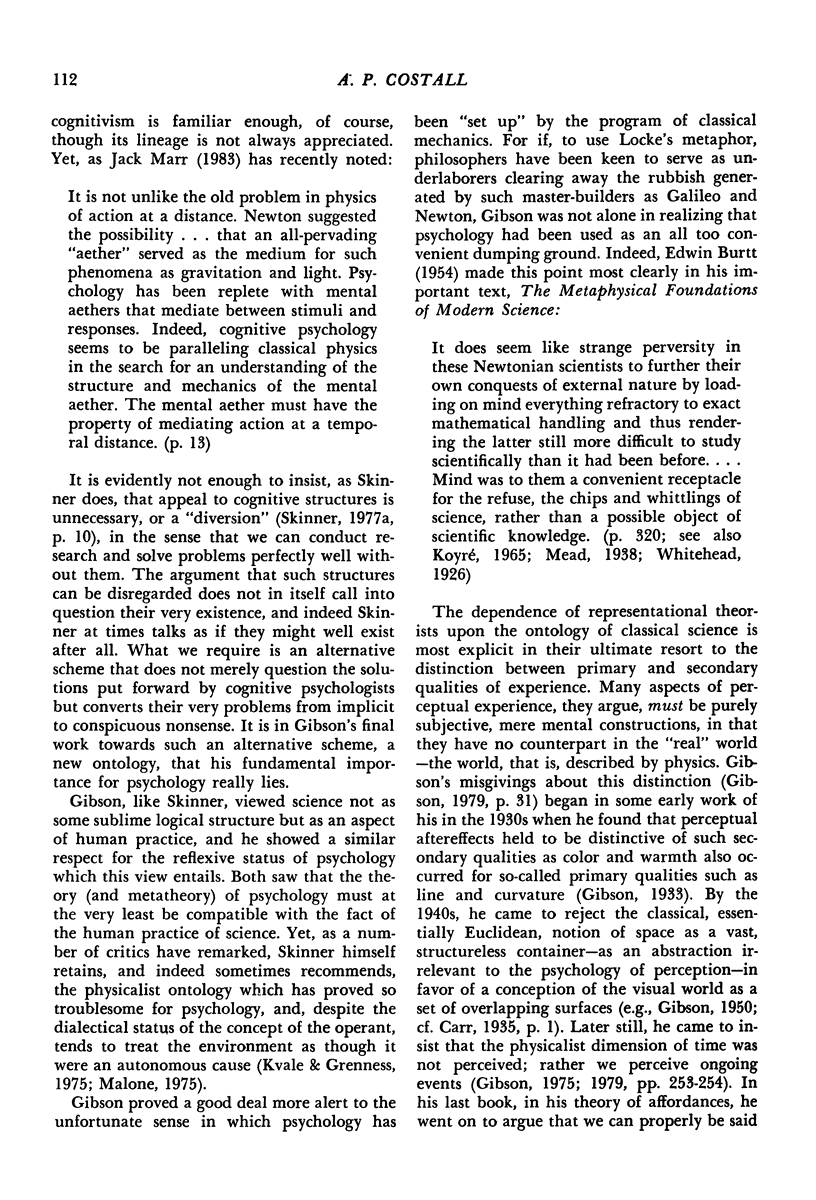
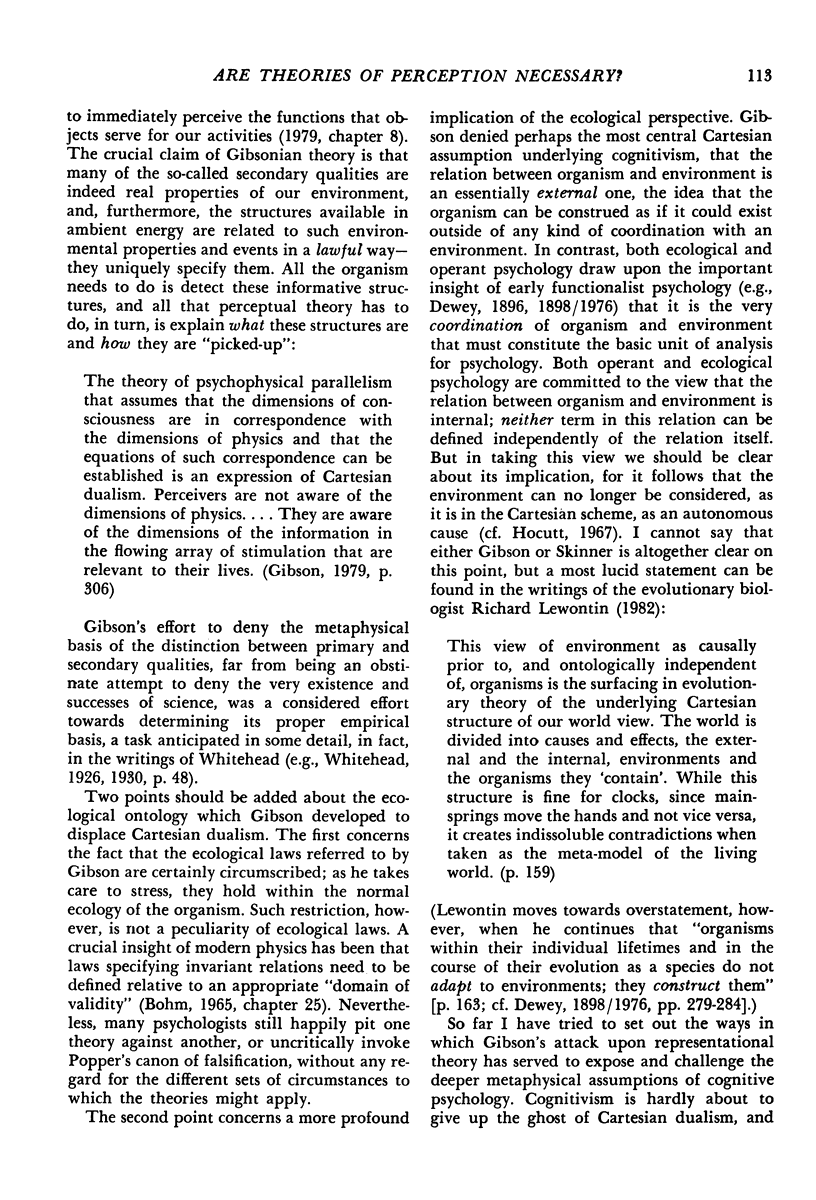
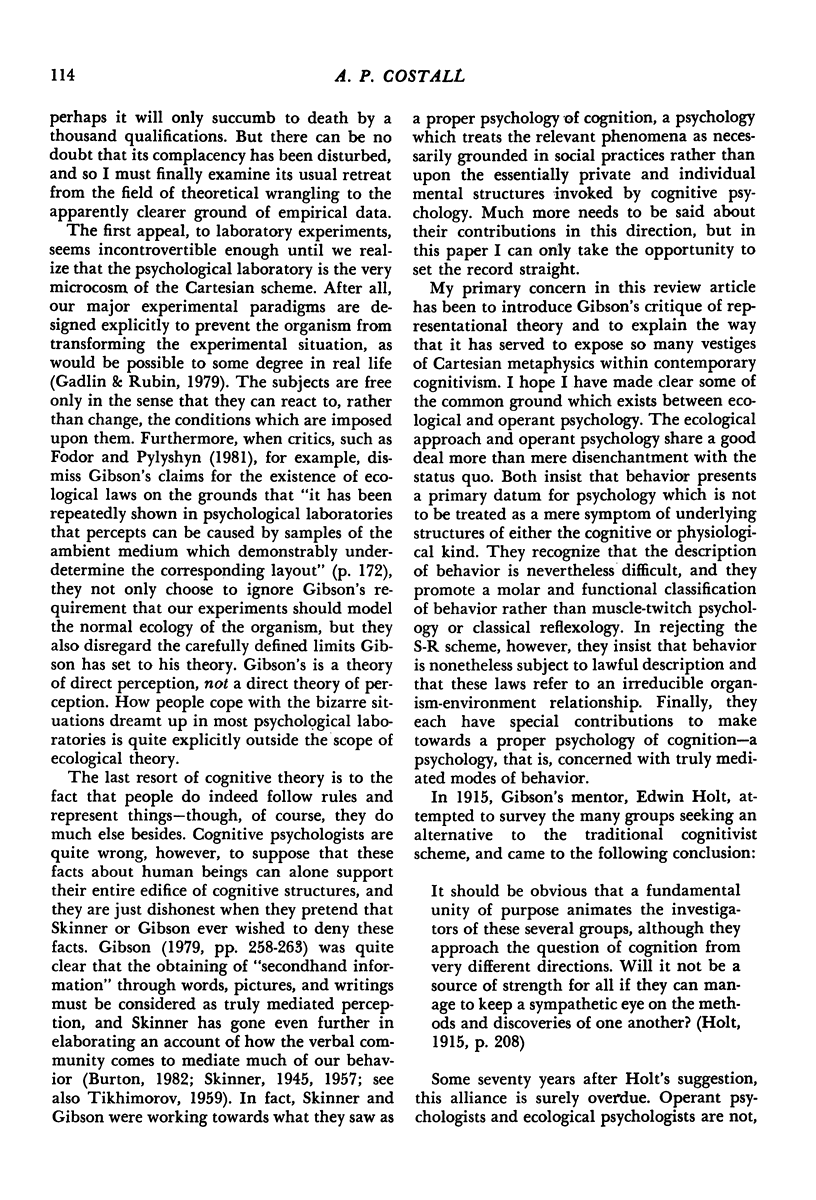
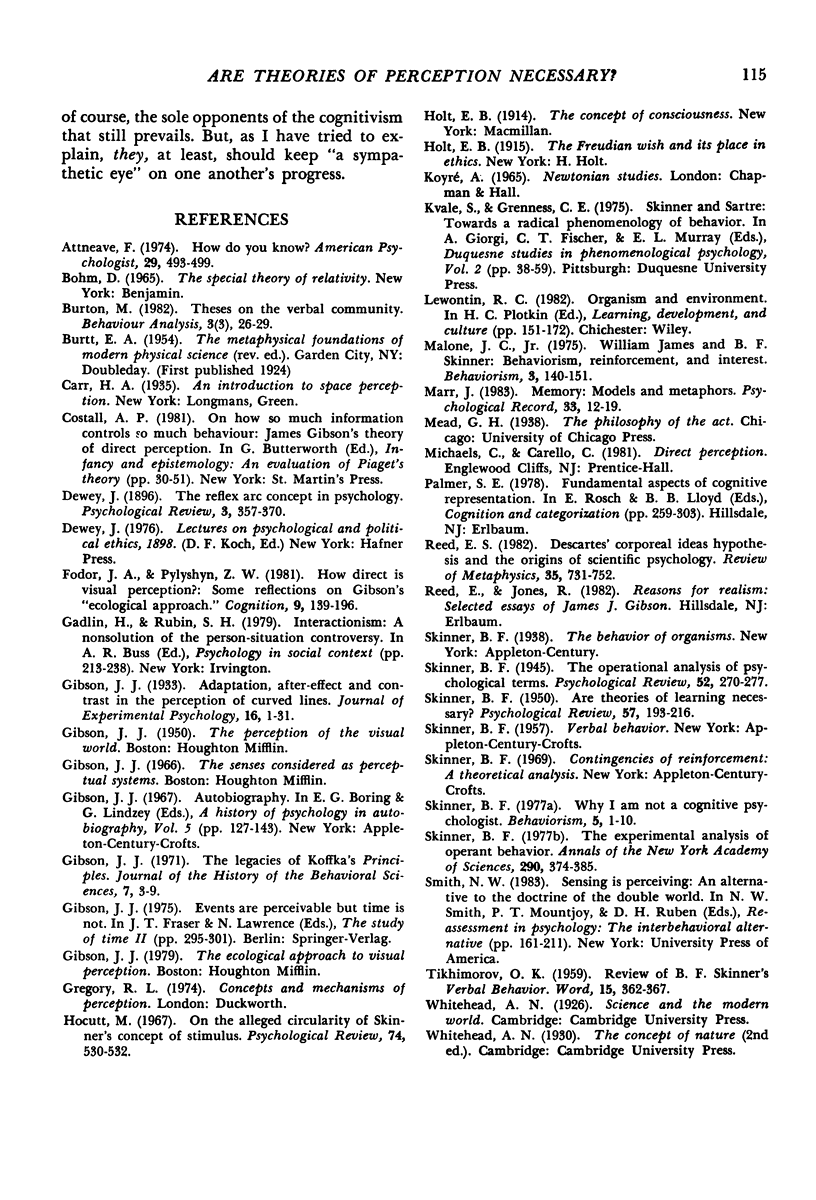
Selected References
These references are in PubMed. This may not be the complete list of references from this article.
- Fodor J. A., Pylyshyn Z. W. How direct is visual perception?: some reflections on Gibson's "Ecological Approach'. Cognition. 1981 Apr;9(2):139–196. doi: 10.1016/0010-0277(81)90009-3. [DOI] [PubMed] [Google Scholar]
- Gibson J. J. The legacies of Koffka's Principles. J Hist Behav Sci. 1971 Jan;7:3–9. doi: 10.1002/1520-6696(197101)7:1<3::aid-jhbs2300070102>3.0.co;2-1. [DOI] [PubMed] [Google Scholar]
- Hocutt M. On the alleged circularity of Skinner's concept of stimulus. Psychol Rev. 1967 Nov;74(6):530–532. doi: 10.1037/h0025100. [DOI] [PubMed] [Google Scholar]
- Reed E. S. Descartes' corporeal ideas hypothesis and the origin of scientific psychology. Rev Metaphys Morale. 1982;35:731–752. [PubMed] [Google Scholar]
- SKINNER B. F. Are theories of learning necessary? Psychol Rev. 1950 Jul;57(4):193–216. doi: 10.1037/h0054367. [DOI] [PubMed] [Google Scholar]


